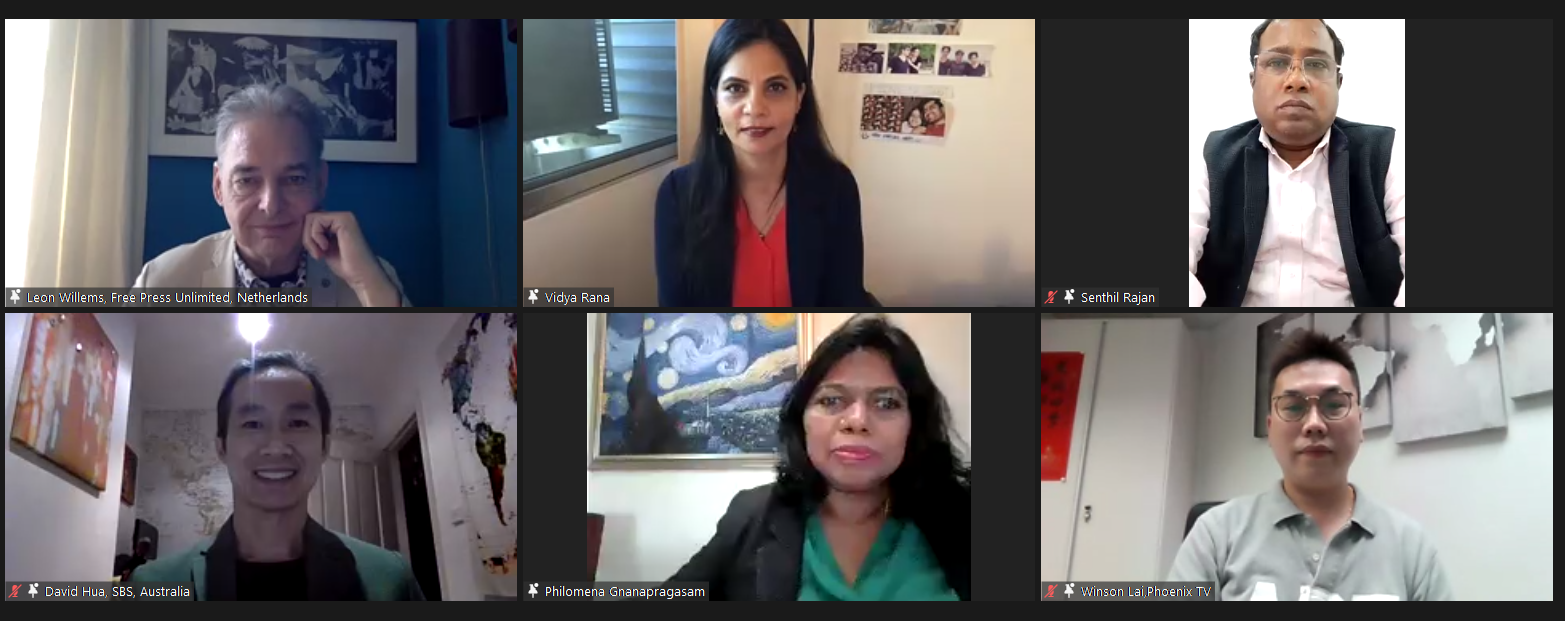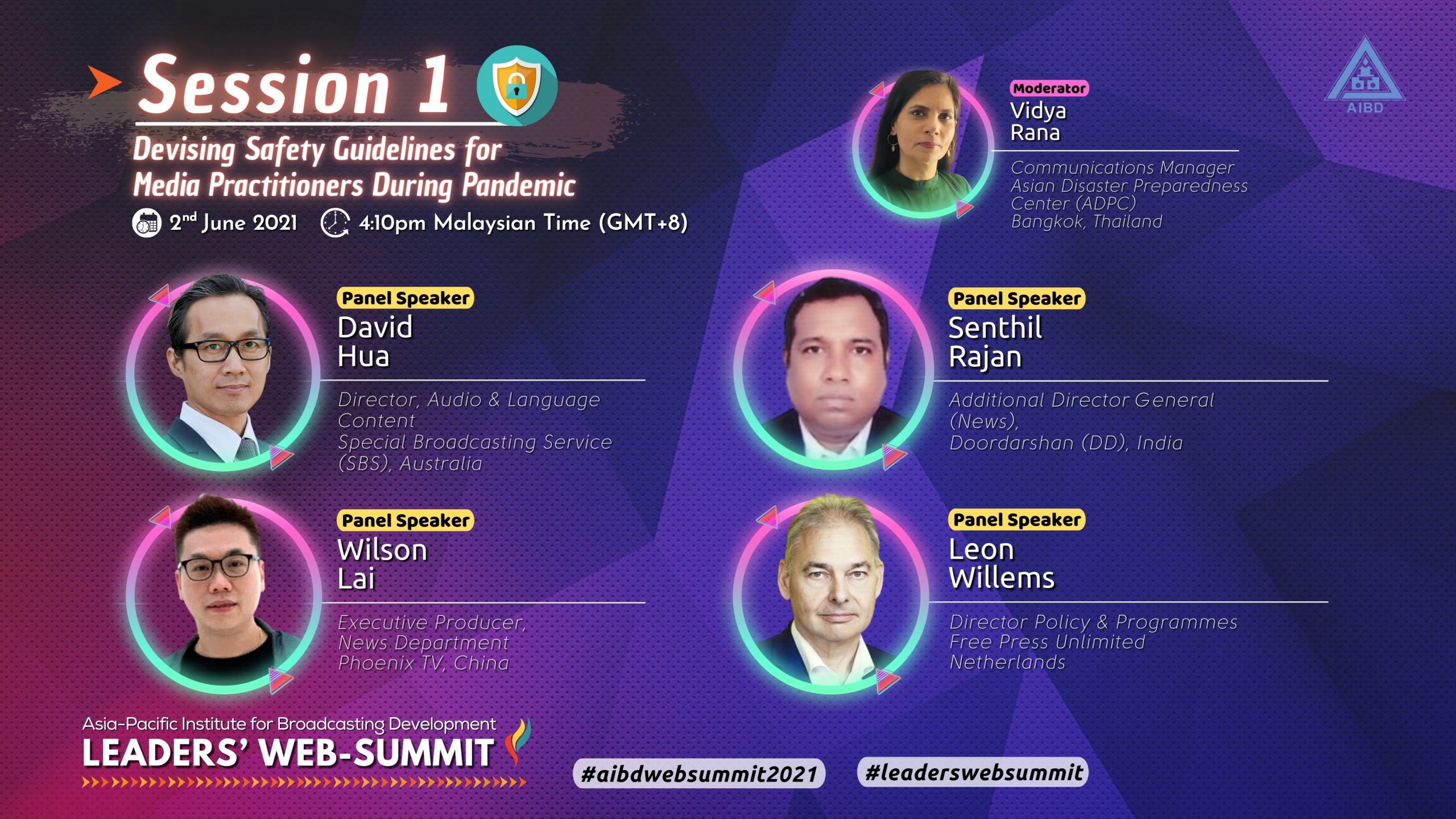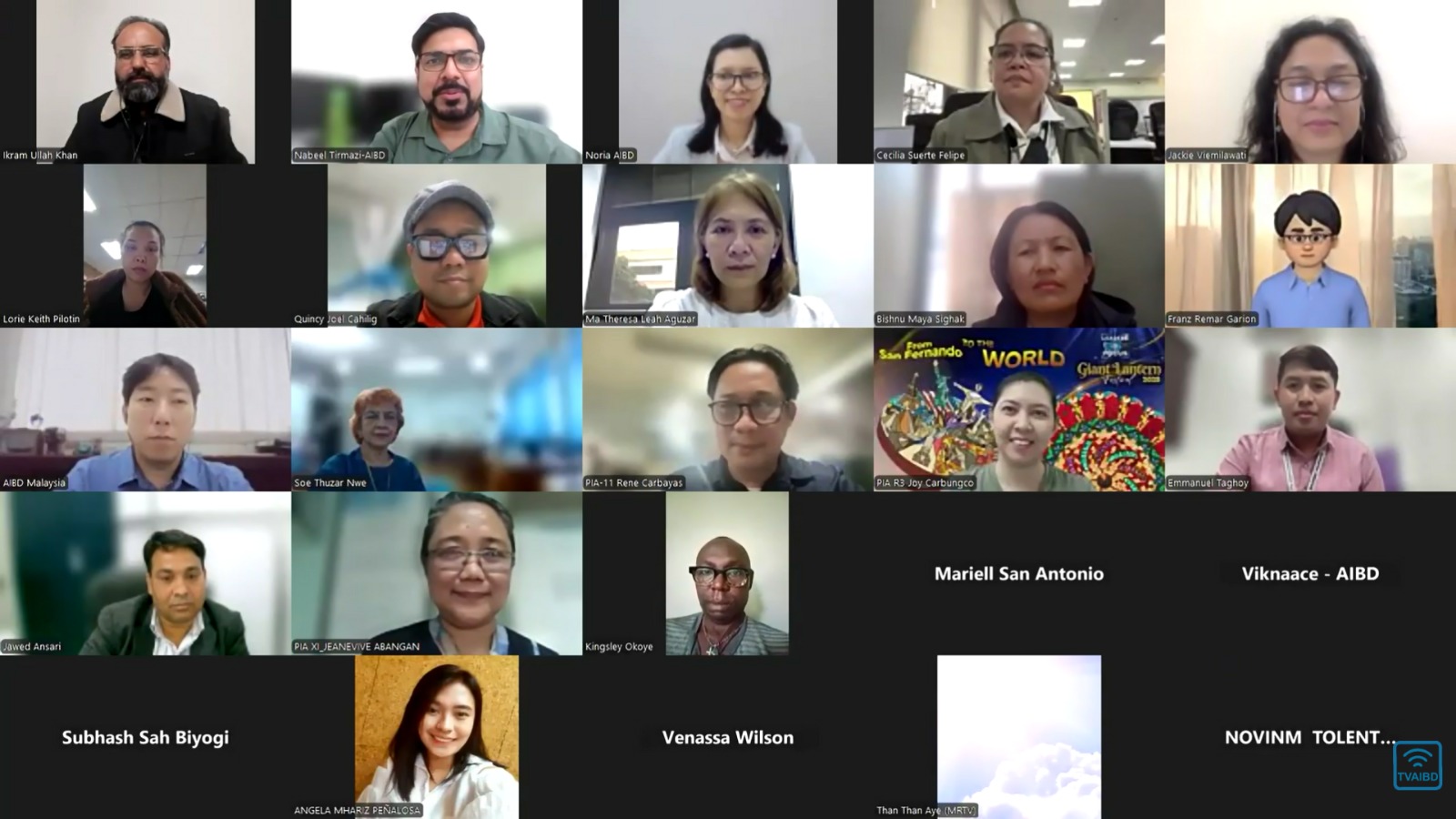
Devising Safety Guidelines for Media Practitioners during Pandemic

Media organisations from different parts of the globe shared their respective health precautionary measures on safety guidelines for their personnel during COVID-19 pandemic.
Special Broadcasting Service (SBS) Australia’s COVID-19 responses included organising wellness session for its staff as parts of the Safety Operations Procedures (SOP) and treating complacency as an enemy.
Its Director for Audio and Language Content, Mr David Hua said at the same time, SBS also produced an enormous amount of content across different platforms and in multiple languages for its audiences.
He was among the four panellists who participated in Session 1 on Devising Safety Guidelines for media practitioners during pandemic of AIBD’s inaugural Leaders’ Web-summit hosted from Kuala Lumpur on June 2, 2021.
Additional Director General (News), Doordarshan (DD) India, Mr Senthil Rajan gave the India Perspective on Public Service Broadcasting during Pandemic. He said DDI re-adjusted its programming by developing special programmes and health campaigns dedicated on Health Shows with Doctors Speak on daily live phone-in interactive sessions.
Other measures includes News Anchors wear masks while reading news – propelling Behaviour Change Communication; Promos on Vaccination & COVID appropriate behaviour are being run across the DD Networks; Special Creative on COVID appropriate behaviour have also been designed for social media.
DDI introduced new SOPs and administrative, Technological and Programming Changes in Newsroom operations, field reporting, Content Generation and Production.
Executive Producer, Production Department (News) of Broadcasting Technology & Production Centre, Phoenix Satellite Television Hong Kong, Mr Winson Lai spoke on the Phoenix TV Contingency Plan under COVID-19.
Some key measures adopted at work places like body temperatures being taken, minimizing number of visitors, provisions of face masks, cutting down on overseas travel, conducting COVID 19 tests, assigning staff in teams to minimize physical contact, broadcasting pre-recorded programmes with selective low timelines, programming with two hosts changed to a single host and introduction of online interviews.
Director of Policy & Programmes, Free Press Unlimited FPU) Netherlands, Mr Leon Willems shared his insights on Trends in access to reliable information in the UN Development Agenda’s framework – globally & in Asia.
He proposed that the governments should assist media houses and ensure that media workers who are often on the frontline are provided with the safety measures such as vaccinations and protective equipment as well as the cost of treatment for those infected by COVID-19. In addition, the Governments should reconsider legal inhibitions on freedom of expression regarding fake news related to Covid-19 and start Civil Society consultation on how to withdraw such regulation.
On Voluntary National Review (VNR) process, Leon suggested that Government must provide more clarity on legislation regarding social media. Social media rules developed, have repeatedly been criticized by civil society. And to ensure that if there is legislation regarding this platform, stakeholders are actively involved in the process. Besides, more attention is also needed to address the increase of digital threats against women journalists online and off-line.







